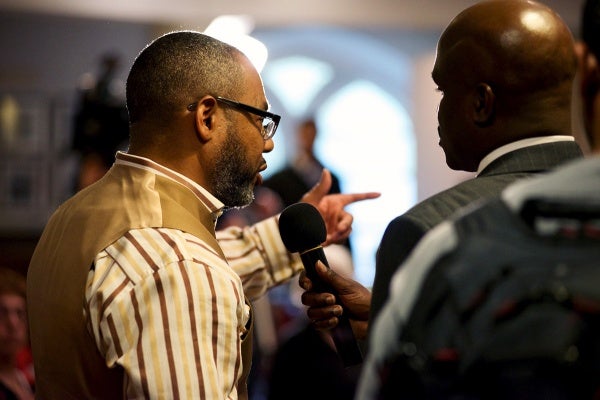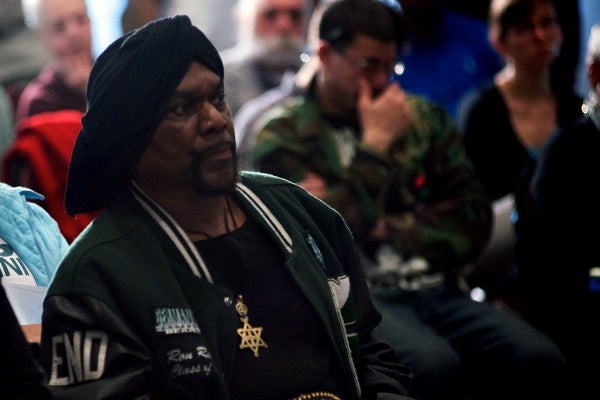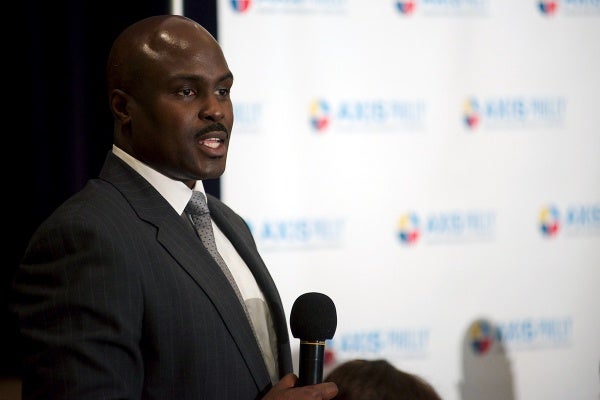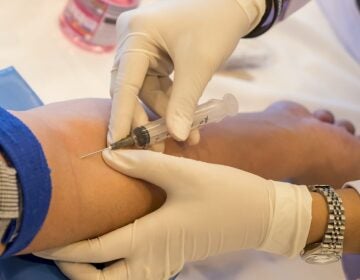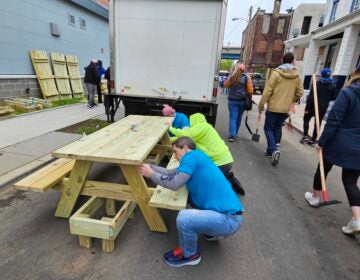Discussion about Germantown High School property’s future continues
Vocational-training facility. Retirement community. Cultural center.
Those were just some of the new uses for Germantown High School’s building that were discussed Friday during “What’s Next? A Forum on the Future of Germantown High,” a panel event co-sponsored by NewsWorks content partner NBC 10 and hosted by Solomon Jones.
The background
In early March, the city’s School Reform Commission voted to close Germantown, a recommendation part of the district’s Facilities Master Plan, an effort aimed at addressing an ongoing budget crisis and improving the education students receive.
As of this week, Germantown is one of 24 city schools slated to close following the end of the academic year.
Though the school year doesn’t officially end for another nine weeks, residents and community leaders were invited to First United Methodist Church of Germantown, for a conversation about what should be done with the 99-year-old building when the final bell rings.
The panel
Emily Dowdall, senior associate with the Pew Charitable Trusts’ Philadelphia Research Initiative, said it’s best to start discussing the future of a vacant school building sooner rather than later. They’re not an easy sell.
“We found that the longer a building sits empty, it becomes much harder to find a new life for it,” said Dowdall, who has extensively researched the fates of shuttered school buildings across the country.
As that dialogue begins, Betty Turner, president of the Germantown Community Connection, noted that collaboration, unity and a realistic look at community needs will be essential for Germantown to live on as a community asset.
“We have to stay in tune with reality,” said Turner.
Allan Domb, president of the Greater Philadelphia Association of Realtors, said, for example, that “there’s not one hope of making this residential.” The numbers, he explained, just don’t add up.
City Councilwoman Cindy Bass, whose Eighth District includes Germantown, had another element that will be critical: Cooperation from the School District of Philadelphia.
“You cannot dump all of these vacant properties in our neighborhoods and walk away,” said Bass after mentioning the district’s request for $60 million from the city. Facing a $300 million structural deficit, the district is also asking the state for $120 million. It hopes to pick up the rest through labor concessions.
Other panelists at the event included state Rep. Stephen Kinsey, who graduated from GHS in 1976, and Bill Ewing, who chairs the FUMCOG’s board of trustees.
Hearing from residents
During a brief question-and-answer session, some attendees called for the conversation to remain focused on keeping Germantown open.
A couple of them specifically said the fight to make Germantown a K-12 institution, a proposal presented to district officials prior to the SRC’s decision, should continue.
The district is currently exploring the possibility of adding grades 9-12 to Roosevelt Middle School, which is also located in central Germantown.
For Amy Hankins, who runs an internal-medicine practice two blocks from the school, Germantown’s closure is not a foregone conclusion. The forum, she said, is “jumping the gun.”
“It’s too soon,” said Hankins of the hour-long discussion. “They’re not talking about the children. These children are upset.”
No matter what happens, longtime resident Tammy Pullins said she’d like to see the building’s educational roots remain.
“Having the building used as an education base would continue the tradition,” said Pullins, who has lived in the neighborhood for nearly two decades. “This is where the community looks to education.”
As part of its Facilities Master Plan, the district must offer discounted prices to educational or nonprofit users interested in closed buildings, according to Dowdall’s research.
Friday’s forum was supported by NewsWorks content partners Plan Philly and Public School Notebook and cohosted by Axis Philly.
WHYY is your source for fact-based, in-depth journalism and information. As a nonprofit organization, we rely on financial support from readers like you. Please give today.





